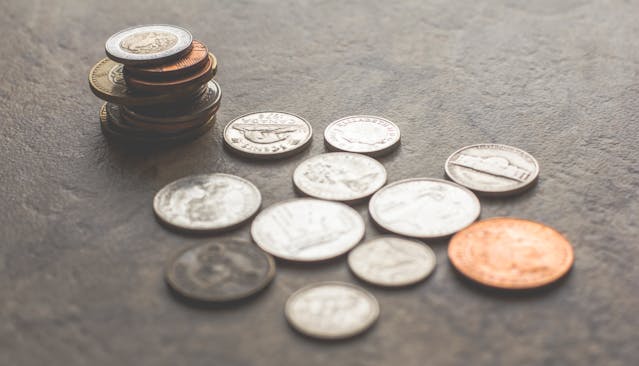What is Money?
Introduction to Money and Currency
Money is a medium of exchange that facilitates transactions for goods and services. It serves as a unit of account, a store of value, and a standard of deferred payment. The concept of money has evolved significantly throughout history, transitioning from barter systems to the complex financial instruments we use today.
History of Money and Currencies
The history of money can be traced back to ancient civilizations where barter was the primary means of trade. People exchanged goods directly; for example, a farmer might trade grain for livestock. However, this system had limitations, such as the need for a double coincidence of wants—both parties needing what the other offered.
To overcome these limitations, early forms of money emerged. Commodity money included items like shells, salt, or precious metals that had intrinsic value. The first known coins were minted in Lydia (modern-day Turkey) around 600 BCE, made from electrum—a naturally occurring alloy of gold and silver. These coins standardized value and made transactions easier.
As societies advanced, paper currency was introduced in China during the Tang Dynasty (618–907 CE) and later spread to Europe in the Middle Ages. Governments began issuing fiat currency—money without intrinsic value but established as legal tender by government decree. This shift allowed for greater control over monetary policy.
Why Governments Use Currencies
Governments utilize currencies primarily to regulate their economies. By controlling the supply of money through central banks, they can influence inflation rates, interest rates, and overall economic growth. A stable currency fosters trust among citizens and international trading partners.
Additionally, currencies serve as tools for taxation and public spending. Governments collect taxes in their national currency, which helps fund public services such as education, healthcare, and infrastructure development.
Keeping Money Safe from Inflation
Inflation erodes purchasing power over time; hence individuals seek ways to protect their savings from its effects. Several strategies exist:
- Investing in Assets: Investing in real estate or stocks can provide returns that outpace inflation.
- Diversification: Holding a mix of asset classes can mitigate risk.
- Inflation-Protected Securities: Some governments issue bonds specifically designed to protect against inflation.
- Precious Metals: Gold and silver have historically been seen as safe havens during inflationary periods due to their intrinsic value.
Goldexcode Coupons: A Modern Approach to Barter and Savings
Goldexcode offers both physical and digital coupons backed by gold and other assets like properties. This model represents a form of private money with high security features:
- Backed by Assets: Each coupon is tied to tangible assets which provide inherent value.
- High Security: Goldexcode implements stringent security measures to ensure the safety of investments.
- Insurance Against Loss: The assets backing these coupons are insured against loss or theft.
Using Goldexcode coupons can facilitate barter transactions or serve as an alternative savings method that protects against inflation while providing liquidity similar to traditional currencies.
In summary, money has evolved from simple barter systems into complex financial instruments governed by national policies aimed at stabilizing economies. Understanding how currencies function within this framework allows individuals to make informed decisions about saving and investing—especially when considering alternatives like Goldexcode coupons that offer unique benefits in today’s economic landscape.


Leave a Reply